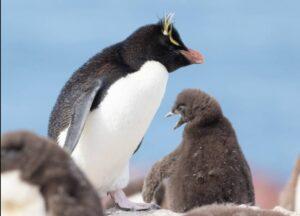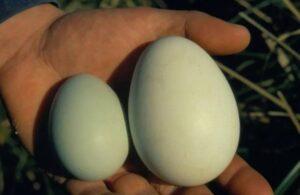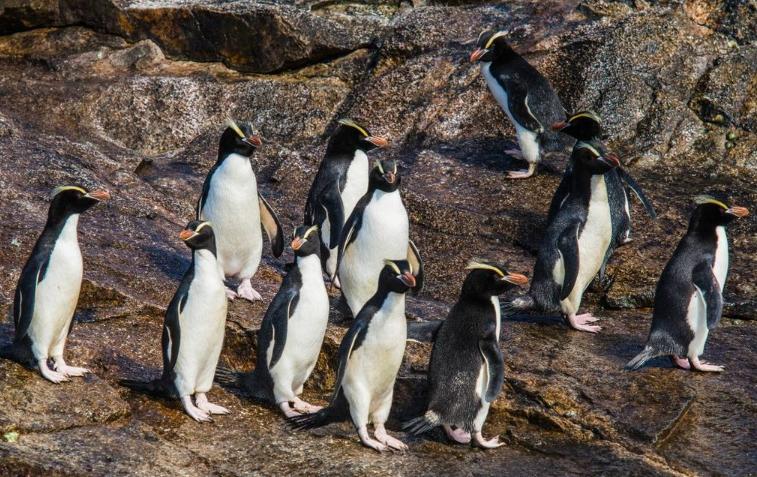The erect-crested penguins of New Zealand have an unusual behavior in birds, rejecting the first egg to only nest the second. Taking into account that laying eggs consumes a lot of energy, biologists have wondered for decades why this behavior happens and it seems that they have already clarified the mystery.
With the scientific name Eudyptes sclateri, penguins live in the subantarctic archipelagos of New Zealand, they are a very isolated species, so little is known about their reproductive behavior. They live on the New Zealand Antipodes and Bounty islands and unfortunately they are in danger of extinction, due to global warming that has destroyed their natural habitat.
Why do the penguins discard the first egg?

Researchers have found that about 45% of New Zealand’s erect-crested penguins don’t even bother to incubate the first egg, just look at it after laying it. But the situation changes when the second egg arrives, which is cared for and nested by the parents who reproduce monogamously.
It is known that the laying of eggs in all birds requires very high energy levels, so biologists are at a loss as to why abandon a possibility of reproduction and fail only in favor of a second egg.
A paper published by researchers at the University of Otagon concluded that penguins condemn their first egg to oblivion, to ensure that the second hatches successfully, because the birds know in advance that they will not be able to feed two. chicks.
In addition, they also noticed that the second eggs were larger than the first, a strange fact since in other species of birds, the clutch of eggs gets smaller as they are laid. However, New Zealand’s lofty-crested penguins appear to be the exception to the rule.
“In most birds, the clutch [of eggs] gets smaller as they are laid, but in this case, the second egg is on average 85% larger than the first,” explains Lloyd Davis, senior author. principal of the study and professor in the department of science communication at the University of Otagon.
Discarding hypotheses

One of the first hypotheses of the researchers is related to the fact that penguins make nests with stones, sticks and grass. Instead, they found that more than 90% of erect-crested penguins lay their eggs on a rocky platform, which isn’t exactly level, and the eggs tend to roll.
To mitigate this, the scientists installed stone rings around 14 nests to prevent the eggs from rolling off the nesting sites. But even this did not encourage parents to take care of the first eggs. So the decision to ignore them responds to the survival of the species.
The penguins know that they will not be able to feed more than one chick and also choose the second egg in favor of its size and the chances of reaching adulthood.
Although at first it was not understood why the penguins behaved in this way, the wisdom of nature continues to amaze scientists who have now determined that everything responds to a greater probability of survival of the species.

